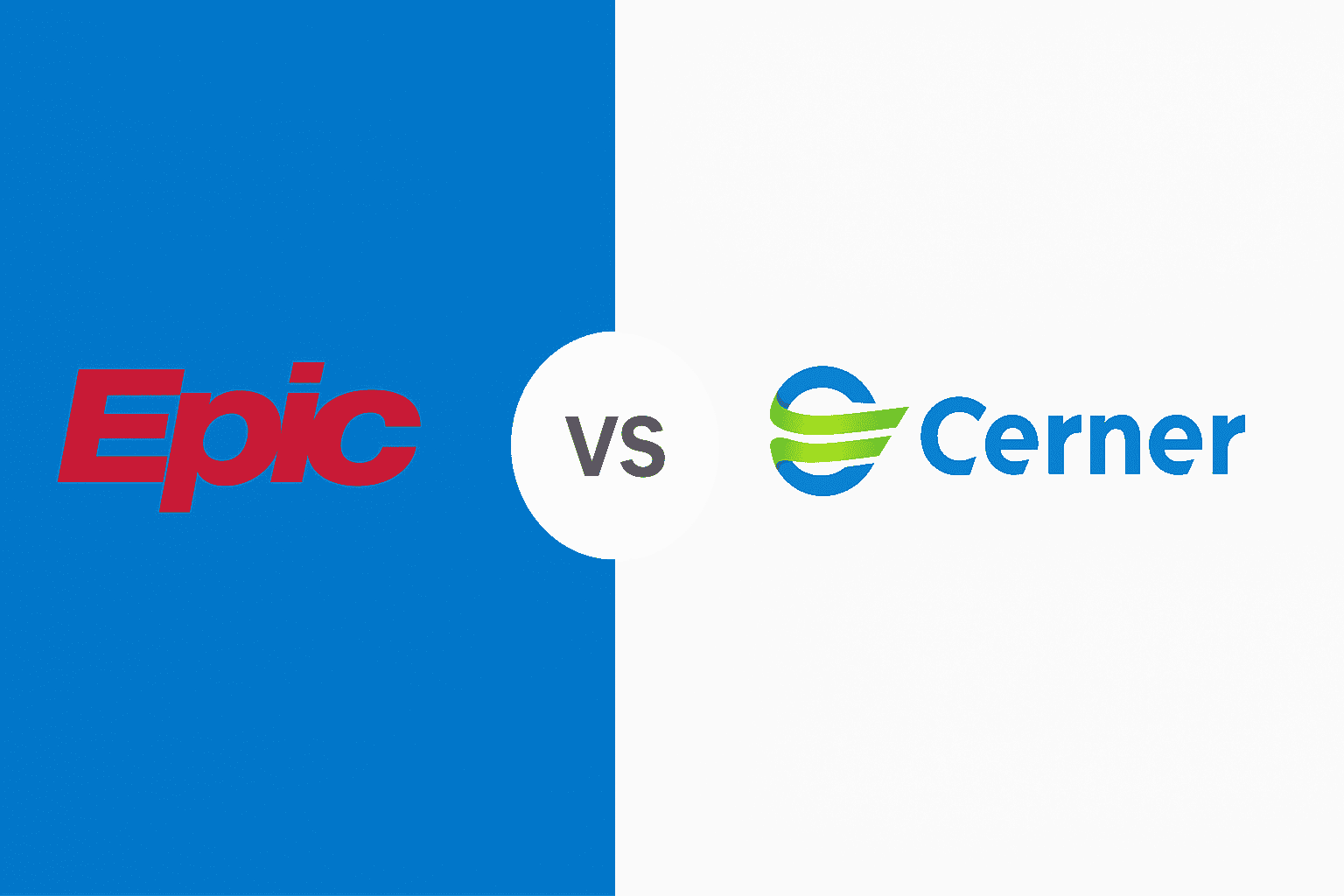Updated on: July 10, 2025
In the world of healthcare technology, few debates are as important—or as complex—as Epic vs. Cerner. These two electronic health record (EHR) giants dominate the market, powering the digital infrastructure behind thousands of hospitals and clinics worldwide.
But when it comes to choosing the right system for your healthcare organization, how do you decide between Epic and Cerner? In this comprehensive guide, we’ll break down their key features, differences, pros, and cons to help you make an informed decision.
We’ll also explore how Virtual Medical Scribes and AI-powered documentation solutions like Docscrib can enhance your EHR experience, no matter which platform you choose.
👉 Learn how Docscrib complements any EHR:
Epic vs. Cerner: Quick Overview
| Feature | Epic | Cerner |
|---|---|---|
| Market Share | Largest EHR vendor in the U.S. | Strong global presence, particularly in large hospital systems |
| User Interface (UI) | Highly customizable, complex learning curve | More user-friendly, intuitive interface |
| Cost | Higher overall implementation cost | Generally more cost-effective |
| Interoperability | Strong, but sometimes seen as closed | Open standards, better cross-system sharing |
| Target Market | Large hospitals, academic centers | Mid-sized to large hospitals, health systems |
| AI & Automation | Growing AI features, integrates with scribes | Advanced AI tools, population health focus |
What is Epic?
Founded in 1979, Epic Systems Corporation is the largest provider of electronic health records (EHRs) in the U.S. Known for its powerful tools and scalability, Epic serves:
-
Academic medical centers
-
Large hospital systems
-
Integrated delivery networks (IDNs)
Key Features of Epic:
-
Comprehensive patient portals (MyChart)
-
Strong data analytics and reporting
-
Deep specialty-specific modules
-
Advanced telehealth integrations
Pros:
✅ Highly customizable
✅ Extensive interoperability with other systems
✅ Strong brand reputation
Cons:
❌ High cost of implementation and maintenance
❌ Steep learning curve for new users
What is Cerner?
Cerner Corporation, now a part of Oracle Health, is another leading EHR provider with a focus on data-driven healthcare and population health management. Cerner is popular among:
-
Community hospitals
-
Regional health systems
-
Government healthcare providers
Key Features of Cerner:
-
Population health analytics
-
Real-time clinical decision support
-
Cloud-first approach with Oracle
-
Open standards for data sharing
Pros:
✅ User-friendly interface
✅ Strong analytics and AI capabilities
✅ Generally lower cost than Epic
Cons:
❌ Some users report slower system speeds
❌ Less customization than Epic
Epic vs. Cerner: Head-to-Head Comparison
1. Ease of Use
-
Cerner tends to have a shorter learning curve, especially for new users.
-
Epic is feature-rich but requires more extensive training.
2. Interoperability & Data Sharing
-
Cerner excels in open data sharing.
-
Epic has improved but is often viewed as more “closed.”
3. Cost
-
Epic is more expensive upfront and in long-term maintenance.
-
Cerner offers more affordable solutions, especially for mid-sized practices.
4. Scalability
-
Epic is better suited for large, complex health systems.
-
Cerner scales well for medium to large organizations without the extreme costs.
5. AI & Automation
Both platforms are investing in AI and automation—but pairing them with Virtual Medical Scribes like Docscrib can significantly enhance efficiency and reduce clinician burnout.
The Role of Virtual Medical Scribes with Epic & Cerner
Regardless of your EHR choice, one major pain point remains: clinical documentation overload.
That’s where Virtual Medical Scribes and AI Medical Scribes like Docscrib come in:
-
Automatically transcribe patient visits in real-time
-
Reduce time spent on EHR data entry
-
Enhance documentation accuracy
-
Lower clinician burnout
With Docscrib, you can seamlessly integrate AI medical transcription into Epic, Cerner, or any other EHR system.
Epic vs. Cerner: Which Should You Choose?
Choose Epic if:
✔ You are a large hospital system or academic center
✔ You need deep customization and specialty modules
✔ Budget is less of a constraint
Choose Cerner if:
✔ You are a mid-sized to large organization looking for affordability
✔ You prioritize ease of use and open data sharing
✔ You want strong population health management tools
For both, adding a Virtual Medical Scribe like Docscrib can dramatically enhance your EHR experience, freeing up time for what matters most: patient care.
The Future of EHRs: AI, Automation & Better Workflows
The EHR landscape is shifting rapidly. Both Epic and Cerner are investing heavily in:
-
AI and predictive analytics
-
Voice-driven documentation
-
Population health and value-based care
Forward-thinking healthcare providers are now pairing their EHR with AI-powered solutions like Docscrib to:
-
Automate documentation
-
Reduce administrative burden
-
Improve care quality
👉 Ready to transform your documentation process?
Schedule a free demo of Docscrib
Frequently Asked Questions (FAQ)
1. Can Docscrib work with both Epic and Cerner?
Yes! Docscrib is designed to integrate seamlessly with all major EHR systems, including Epic and Cerner.
2. Will AI scribes replace human scribes?
AI scribes like Docscrib complement human scribes by handling routine documentation, allowing humans to focus on complex cases when needed.
3. How secure is AI medical transcription?
Docscrib is fully HIPAA-compliant, ensuring top-tier data security and patient privacy.
✅ Take the Next Step:
👉 Book Your Free Demo
or visit Docscrib.com to learn how we can help your practice work smarter, not harder.
